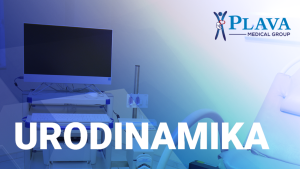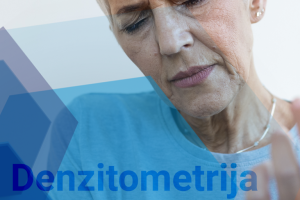Hyperthyroidism is a state of increased activity of the thyroid gland, the consequence of which is the excessive secretion of its hormones, so it secretes more hormones into the blood than our body needs. Thyroid hormones regulate energy production, cholesterol levels, calorie consumption, affect the heart, digestion, muscles, but also our psyche.
The intensity of the symptoms depends on the severity of the disorder, the amount of time that has passed since the onset of hyperthyroidism, and the age of the patient. The most common symptoms of hyperthyroidism are:
- nervousness, behavioral changes, weakness and fatigue
- trembling hands, rapid and uneven heartbeat, palpitations, loss of breath, even when resting
- increased discomfort when staying in warm rooms and more difficult to tolerate heat, excessive sweating
- frequent bowel movements, sometimes diarrhea
- hair loss
- weight loss
- in women, the occurrence of irregular menstruation or complete loss of menstruation is also possible
If you suffer from the symptoms of hyperthyroidism, it is important to avoid stressful situations, because stress can be a crucial trigger for the thyroid gland to overwork. In addition, it is important to avoid caffeine, since it has been proven that hyperthyroidism symptoms worsen with caffeine. Smoking and alcohol are also strictly prohibited by hyperthyroidism, because they can be a trigger for worsening symptoms.
Early detection and diagnosis of hyperthyroidism is very important. Adults, especially women, should, according to the recommendations of experts, start with thyroid hormone examinations at the age of 35, and repeat the same examinations every 5 years.
The doctor reaches the diagnosis of hyperthyroidism by measuring the level of thyroid hormones in the blood.
The way to treat hyperthyroidism depends on the type of disorder, the size of the thyroid gland, the presence of goiter, the patient's age and pregnancy. The treatment aims to establish a hormonal balance in the body and lower the level of thyroid hormones in the blood, and this can be achieved in several ways: using antithyroid drugs that inhibit the production of thyroid hormones, treatment with radioactive iodine or surgery. Although the symptoms of hyperthyroidism usually disappear after six to eight weeks, the medication should be continued for at least a year, and in some cases much longer. It is very important to continue regular check-ups because in about 30-40% of cases, after treatment with antithyroid drugs, the disease returns again.
The most common way to treat hyperthyroidism caused by low-dose toxic goiter is treatment with radioactive iodine, which is taken as a liquid or tablet and then damages the thyroid cells and their ability to secrete hormones. The consequence of such treatment can be the appearance of hypothyroidism, a condition inverse to hyperthyroidism, when the level of thyroid hormone in the blood is lower than normal. This occurs because radioactive iodine often destroys much of the thyroid gland's function. If the treatment of hyperthyroidism with radioactive iodine or antithyroid drugs does not lead to improvement, in that case surgical removal of a part or the entire thyroid gland is performed.
Surgical removal is also a treatment method in the event that the thyroid gland grows to such a size that it presses on the neck veins or causes difficulty in breathing and swallowing. In most cases, the consequence of treatment with radioactive iodine or surgical removal of the thyroid gland is the appearance of hypothyroidism, which implies the need for lifelong treatment with hormone replacements. i.e. synthetic thyroid hormones. For this reason, it is important to periodically control the values of thyroid hormones and TSH. Untreated hyperthyroidism can seriously endanger your health, as over time it can lead to rapid heart rate, atrial fibrillation, or even heart failure.











Comments are closed.